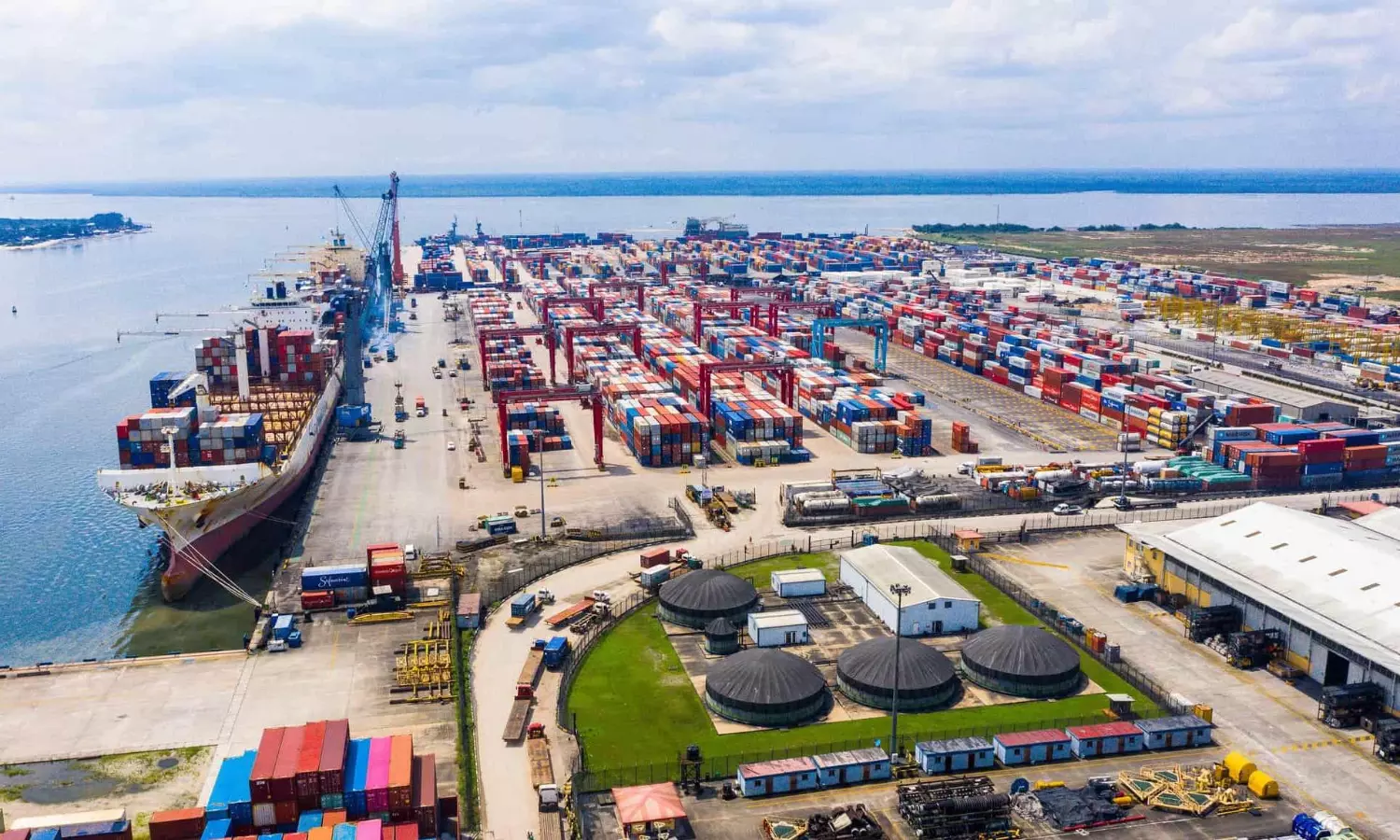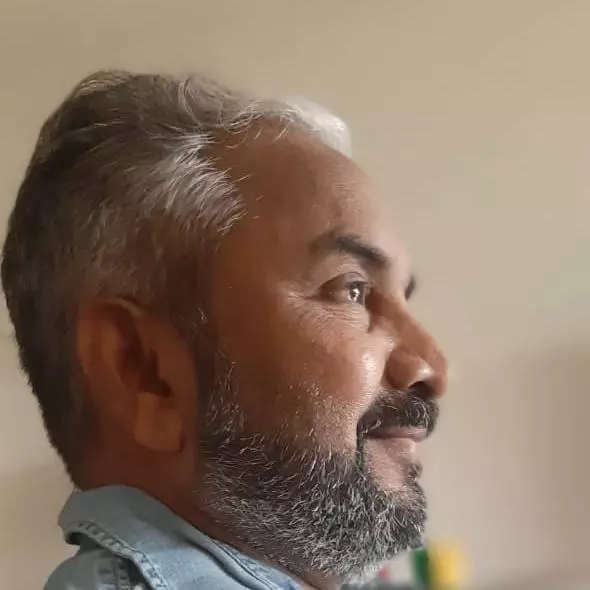African ports in focus with investments, management changes and more
African port industry must catch up in size, quality and efficiency to support expanding market and larger vessels
With Yilport Holding, a subsidiary of Amsterdam and Istanbul-based Yildirim Group, acquiring 35 percent stake in Atlantic Terminal Services (ATSL), the concessionaire for the expansion of Ghana’s Takoradi Port, from Africa Finance Corporation (AFC), the focus is back again on African ports.
A vital seaport in Ghana’s Western Region, Takoradi plays a crucial role in the nation’s economic growth and regional connectivity. It offers shorter and less-congested links to west and central Ghana, including the Takoradi region, which boasts of substantial agricultural activity including 50 percent of Ghana’s cocoa production, as well as manufacturing, industrial and business parks, and a growing natural resources sector. The port is also well suited to provide linkages to neighbouring landlocked countries. The project forms part of the country’s national development plan to revitalise and industrialise the western region and enhance Ghana’s overall efficiency and competitiveness by reducing the cost of imports and exports, building local capacity and generating direct employment opportunities.
In Ghana’s Tema Port, the second phase of expansion was officially launched by President Nana Addo Dankwa Akufo-Addo.
The expansion project covers 270,000 square metre area, expanding the terminal’s footprint from 100 hectares to 127 hectares. The phased delivery of the first section, comprising 50,000 square metre area, is slated for July 2024 with the entire project anticipated to reach completion by September 2025.
Igor van den Essen, Regional Managing Director, Africa & Europe, APM Terminals
With African ports in focus, the question would be - what are the key challenges in operations? "Being an emerging market, Africa has a typical set of challenges that you would see in a market that is growing rapidly," says Igor van den Essen, Regional Managing Director, Africa & Europe, APM Terminals. "One of the most significant challenges is the insufficient inland logistics infrastructure that hampers the hinterland connectivity with limited road or rail network, leading to longer dwell time. The long bureaucratic procedures and lack of digitalisation have also led to slower turnaround times. Finally, the logistics sector is quite fragmented and has a limited skills and capabilities pool, leading to several inefficiencies."
Mohammed Akoojee, CEO & MD, sub-Saharan Africa, DP World adds: "Despite the socioeconomic progress and significant growth potential, Africa still faces key challenges including the significant infrastructure gap that the continent faces, which limits sustainable economic growth. Africa’s investment climate can also be improved through better governance, institutional capacity, adequate infrastructure and prudent macroeconomic policy, among other factors."
DP World recently signed a 30-year concession agreement with the Tanzania Ports Authority (TPA) to operate and modernise the multi-purpose Dar es Salaam Port, connecting Tanzania and the wider region to global markets.
DP World will initially invest more than $250 million to upgrade the port and the investment could increase to $1 billion during the concession period, alongside hinterland logistics projects.
"The concession to operate and modernise the Dar es Salaam Port was awarded to DP World with the primary objective of optimising the Port’s operations to improve transport and logistics services throughout Tanzania and its hinterland," says Akoojee. "This investment will have a positive impact for Tanzania’s socioeconomic development in terms of job creation and increased access to products and services, among other benefits."
Mohammed Akoojee, CEO & MD, sub-Saharan Africa, DP World
Automation and port operations
Automation and technology are critical enablers for DP World, including at the Dar es Salaam Port. "DP World makes significant investment in technology and innovation to create stronger, more efficient end-to-end supply chain solutions to help global trade," says Akoojee.
Essen of APM Terminals adds: "In general, automation is an important aspect for the African ports, more from the perspective of digitising paper flows or gate operations to safeguard countries' interests. This naturally leads to improvement in the ease of doing business. However, complex crane and yard automation has yet to find significance in a market that has a large young community that depends on jobs that we can create for ports and other infrastructure that can create jobs for them."
The team at APM Terminals' West Africa Container Terminal’s (WACT) container freight station (CFS) in Nigeria reduced average lead time from 38 minutes to 23 minutes and reduced waiting time from 37 minutes to 23 minutes by deploying Kaizen - including inputs from the customer.
"WACT serves exporters and importers from East Nigeria and beyond, including regulatory authorities. Located within the port boundaries, it offers a secure location with an experienced staff to provide tailored logistical solutions that fast-track all types of Nigerian produce to the world in a just in time, efficient manner.
"Improvements identified for implementation include the electronic transmission of information to shipping lines, a dual cycle of terminal tractor lifting, the stationing of customs officers at CFS and the checking of empty trucks before they are transferred to the CFS yard. All of these measures have made a real impact, including improved information flow and gate process improvements."
Why is Africa attractive
APM Terminals’ operations in Africa are entirely in line with the larger purpose at Maersk: to improve life for all by integrating the world, says Essen. "We can make a difference for the communities we work in by facilitating global trade. By operating in Africa, we are providing our cargo-owning customers with the ability to expand their business and operate in a market where risk and reward traditionally have matched each other.
"Africa is an emerging market with a growing young population and increasing spending power. We are not only observing the demand for goods growing but the manufacturing sector picking up as well. At APM Terminals, we want to play a role in the growth of this market by making meaningful contributions. We have, therefore, been involved in investing and improving African port infrastructure. An example of this could be our instrumental role in upgrading African port infrastructure that is now able to service modern large vessels."
DP World, Akoojee adds, is focused on enhancing Africa’s supply chain by "leveraging our global and local expertise to drive the continent’s economic growth through trade. DP World’s Imperial business has been operating in Africa for over 70 years and has established extensive knowledge and expertise in terms of operating African markets.
"The continent has experienced strong growth driven by an emerging consumer class and resources. The real GDP is expected to grow by 4.3 percent between 2022 and 2027. Moreover, Africa’s population is predominantly youth with 70 percent of them being less than 30 years old and only three percent being older than 65 years. Importantly, albeit relatively low to other regions, intra-Africa trade is growing at 3.9 percent (CAGR)."
An aerial view of Takoradi Port
Is sustainability a consideration?
At Maersk, we are committed to achieving NetZero across all our operations by 2040, says Essen. "This also applies to the APM Terminals operations in Africa, and we are constantly focusing on this ambition while designing and upgrading our facilities in the region.
In 2022, we started operations at Cote d'Ivoire International Terminal in Abidjan, which is a fully electrified terminal. At our new container terminal in Tema, Ghana, we have introduced electrification of RTGs as well.
"Recently, APM Terminals and DP World announced a strategic partnership to accelerate the decarbonisation of the world’s terminals through the widespread electrification of container handling equipment (CHE). The partnership is grounded in research showing the tipping point for battery-electric CHE can be reached within the next two to eight years with the right actions from industry stakeholders."
Akoojee of DP World adds: "We are committed to creating a positive and social impact wherever we work, including Tanzania. We leverage our position as a leader in global smart logistics to create solutions that will make a positive impact now and for future generations to come. Our Sustainability Strategy, "Our World, Our Future" ensures that we operate as a responsible business, prioritising sustainability and impact on people, the environment and the communities in which we operate to achieve a better, more socially equitable and sustainable future."
Outlook for African ports
The African Continental Free Trade Area (AfCFTA) agreement is expected to increase intra-African freight by 28 percent and demand for maritime freight by 62 percent, according to Akojee of DP World. "Additionally, according to a September report from BIMCO, the Indian Subcontinent & Middle East, South & Central America and Sub-Saharan Africa regions have seen solid growth numbers. Those regions’ economies will be among the fastest growing in the coming years and import volumes could also continue to grow faster than average.”
Essen of APM Terminals agrees: Africa is an important market for us with a large potential to grow. "Africa is increasingly being served by large vessels (14,000 TEU), and the ports are becoming bigger to serve these vessels. We also see an emerging transhipment market developing in West Africa. Constant efforts are being made across Africa to improve service levels.
"The African port industry, albeit behind the developed world, must catch up in size, quality and efficiency in order to support the generally expanding market and larger vessel deployment. At APM Terminals, we continue to have a high interest in the African market by pursuing opportunities that match our focus on operational excellence, safety and lifting global trade."




